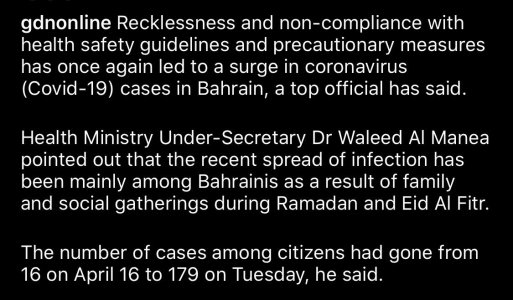US diplomats leaving Saudi as coronavirus cases surge: Report
As countries around the world prepare to battle a looming second wave of coronavirus infections, many United States diplomats are following hundreds of US citizens repatriated over the past few months.
Dozens of US diplomats, along with their families, have left Saudi Arabia in the past 48 hours as the kingdom struggles to contain the outbreak, just weeks after it reopened its economy, the Wall Street Journal (WSJ) reported on Friday.
More are expected to fly out in the coming weeks, officials familiar with the plan told the WSJ, after the US State Department approved the voluntary departure of "non-emergency personnel".
Despite Saudi Arabia's efforts to contain the spread of the virus early on, the number of the cases in the country has surged past 200,000 - up 110,000 from May - according to figures published by the Johns Hopkins University. More than 1,800 people there have died.
The uptick in the number of infections coincided with the kingdom's move to lift restrictions in a bid to revive its economy, which has suffered from low oil prices.
According to the WSJ, the COVID-19 virus managed to make its way into the US embassy in the capital, Riyadh, infecting at least 30 staff members. US officials said those infected were mostly non-Americans.
Sources added that a global voluntary departure decision by the State Department in March was suspended in May, leaving many diplomats "feeling trapped" amid rising infections.
'Sensitive state secret'
The WSJ reported that the House Foreign Affairs Committee last month received an email forwarded by the House Intelligence Committee, which had been "contacted by an individual concerned about the spread of coronavirus in Saudi Arabia", according to congressional aides with knowledge of the matter.
It was then that the State Department issued the voluntary departure notice.
Diplomats expressed concern about their safety as the pandemic "stretches Saudi Arabia's healthcare system to its limits," the WSJ reported congressional aides and a US official as saying.
The lifting of some restrictions, not including inbound international flights and pilgrimages, has left Saudi hospitals struggling to cope with additional cases.
"Foreign residents, including Americans, have complained of being denied medical treatment or coronavirus testing," the WSJ said.
Despite the fact that the Saudi health ministry publishes daily updates on new infections and deaths, one US official said diplomats believe the authorities are treating the real number of cases like a "sensitive state secret", fuelling concerns.
Some were alarmed after a Sudanese driver for the US embassy lost his life after contracting the virus last month.
The diplomats join about 3,000 American citizens who have departed Saudi Arabia in recent months on repatriation flights.
According to the State Department's coronavirus repatriation statistics, last updated on June 10, more than 100,000 Americans have been repatriated since the start of the pandemic.
Among those, at least 6,000 are diplomats and their family members, the New York Times (NYT) reported in April.
It is unclear how many US diplomats were repatriated from the Gulf region, but figures indicate that citizens were brought home from countries including Oman, Kuwait and the United Arab Emirates.
While there are 171 US embassies and 87 consulates around the world, most have closed amid the pandemic.
The US is the hardest-hit country in the number of recorded infections, with more than 2.8 million cases and nearly 130,000 deaths.
Following the US, Brazil, Russia and India are among the world's worst-hit countries currently battling the highly infectious disease.
https://www.aljazeera.com/news/2020...virus-cases-surge-report-200705104720757.html






